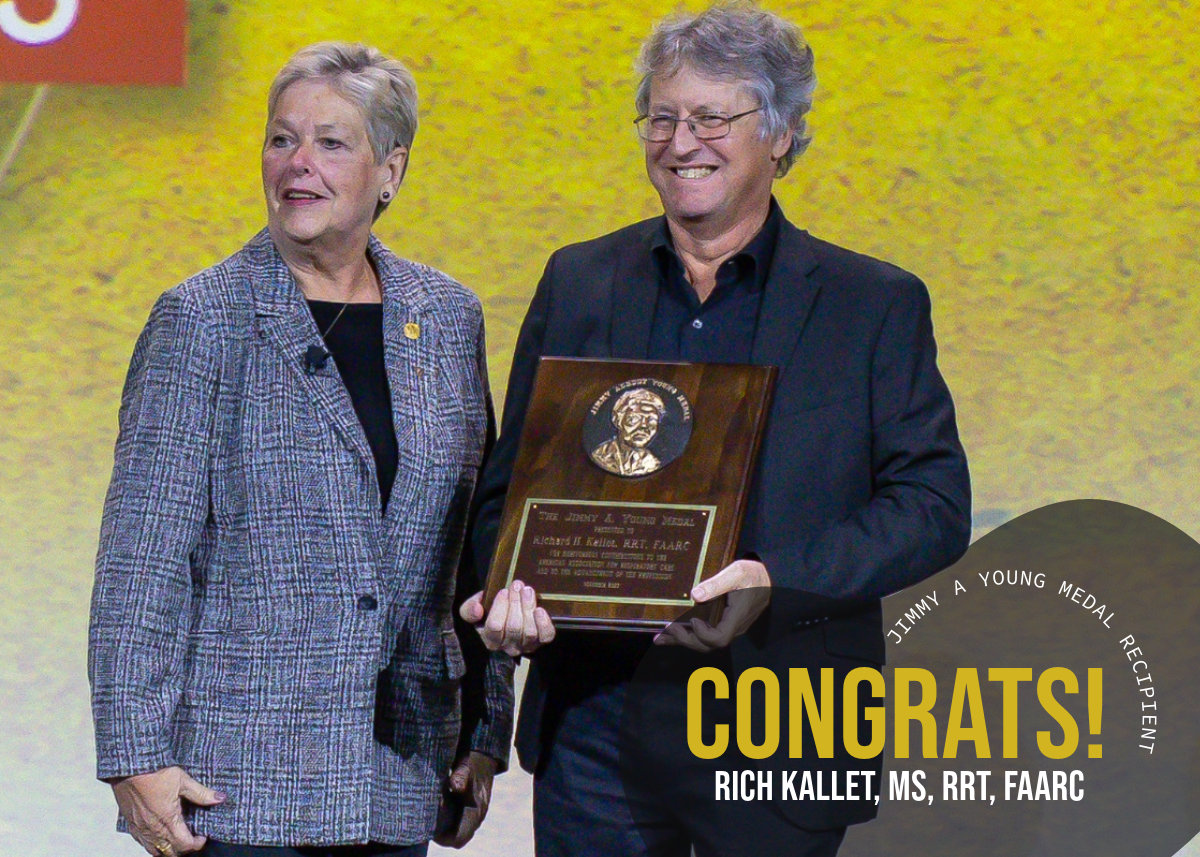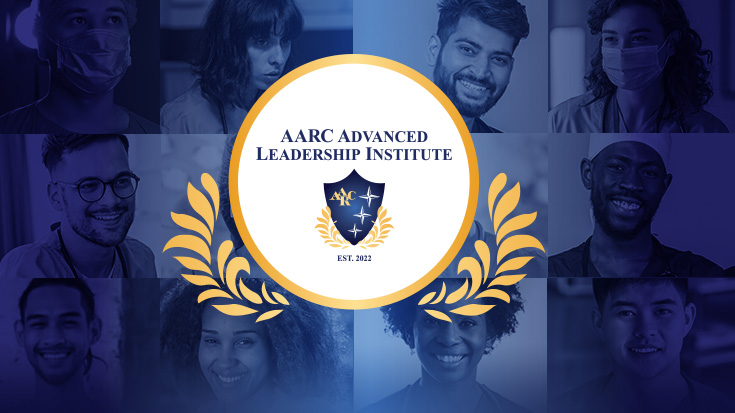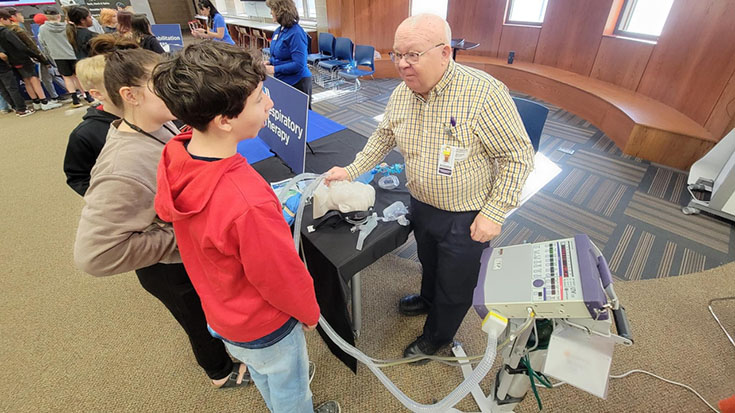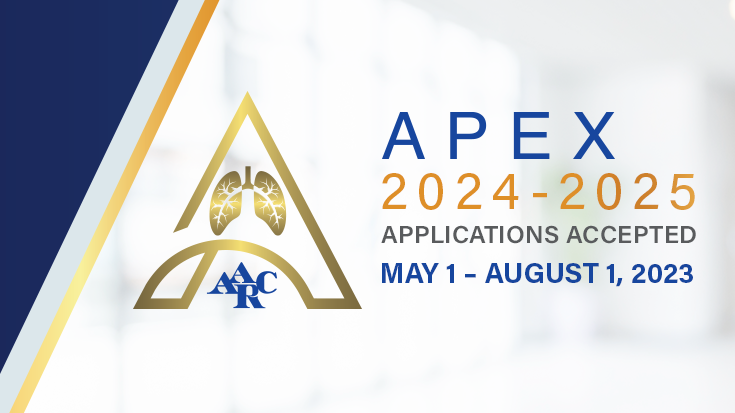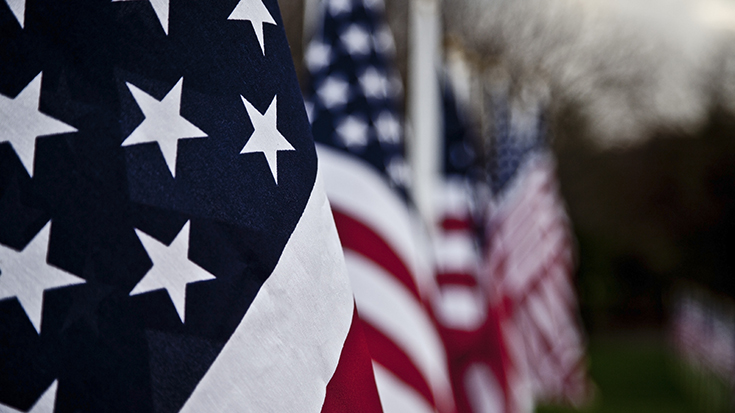
Tomorrow is Veteran’s Day, and in the morning at the AARC Congress in New Orleans, attendees will gather for the Association’s annual Flag Folding Ceremony to pay tribute to those who have willingly given their time and talents to military service.
In the following interview, two of those brave individuals — SSG Jose G. Diaz, BS, RRT, Interservice Respiratory Therapy Program instructor at the Medical Education and Training Center in Fort Sam Houston, TX, and Colonel Wadie Williams, MS, RRT, a respiratory care manager in Texas who has long served with the Texas State Guard — explain how they’ve served their country, and what it means to them to do it.
Which branch of the service are you in, and how long have you served?
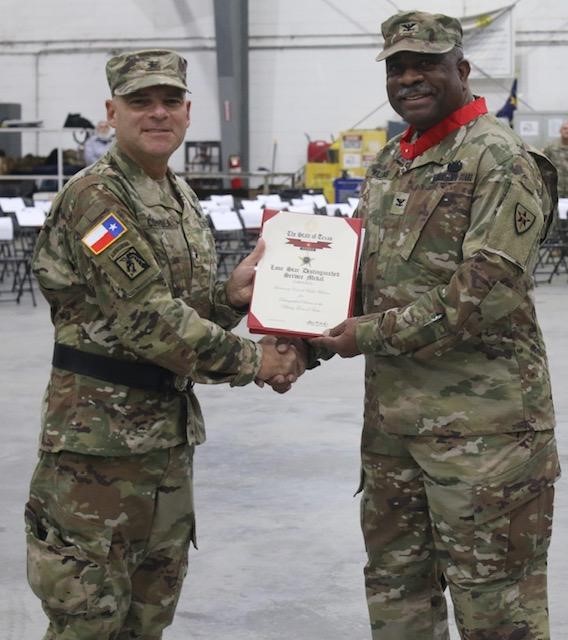 Colonel Wadie Williams, right, is recognized for his service to the Texas State Guard.
Colonel Wadie Williams, right, is recognized for his service to the Texas State Guard.SSG Diaz: I am currently serving on active duty in the United States Army. So far, I have completed 12 years of service.
Colonel Williams: I am currently serving in the Texas Military Forces, Texas State Guard (TXSG), Army component. I was commissioned into the TXSG in 2006. I will be retired and discharged from active duty service by the end of 2022.
What rank have you achieved, and where have you been deployed?
SSG Diaz: I am a Staff Sergeant (E6). I have served as the senior respiratory NCO in charge of the anesthesia department within Task Force Medical 32 in the Baghdad Diplomatic Support Center Role 3, a 32-bed hospital.
Colonel Williams: I have earned the rank of full Colonel (grade 06) and will retire/discharge at that grade and rank by year’s end. My most recent deployments have been along the Texas-Mexico border, establishing and operating Medical Points of Distribution in conjunction with the Texas Department of Health Services and other partner agencies — county, city, and private sectors — in various locales along the border.
What other roles have you played during your military service, and what are some of the most important things you learned through that service?
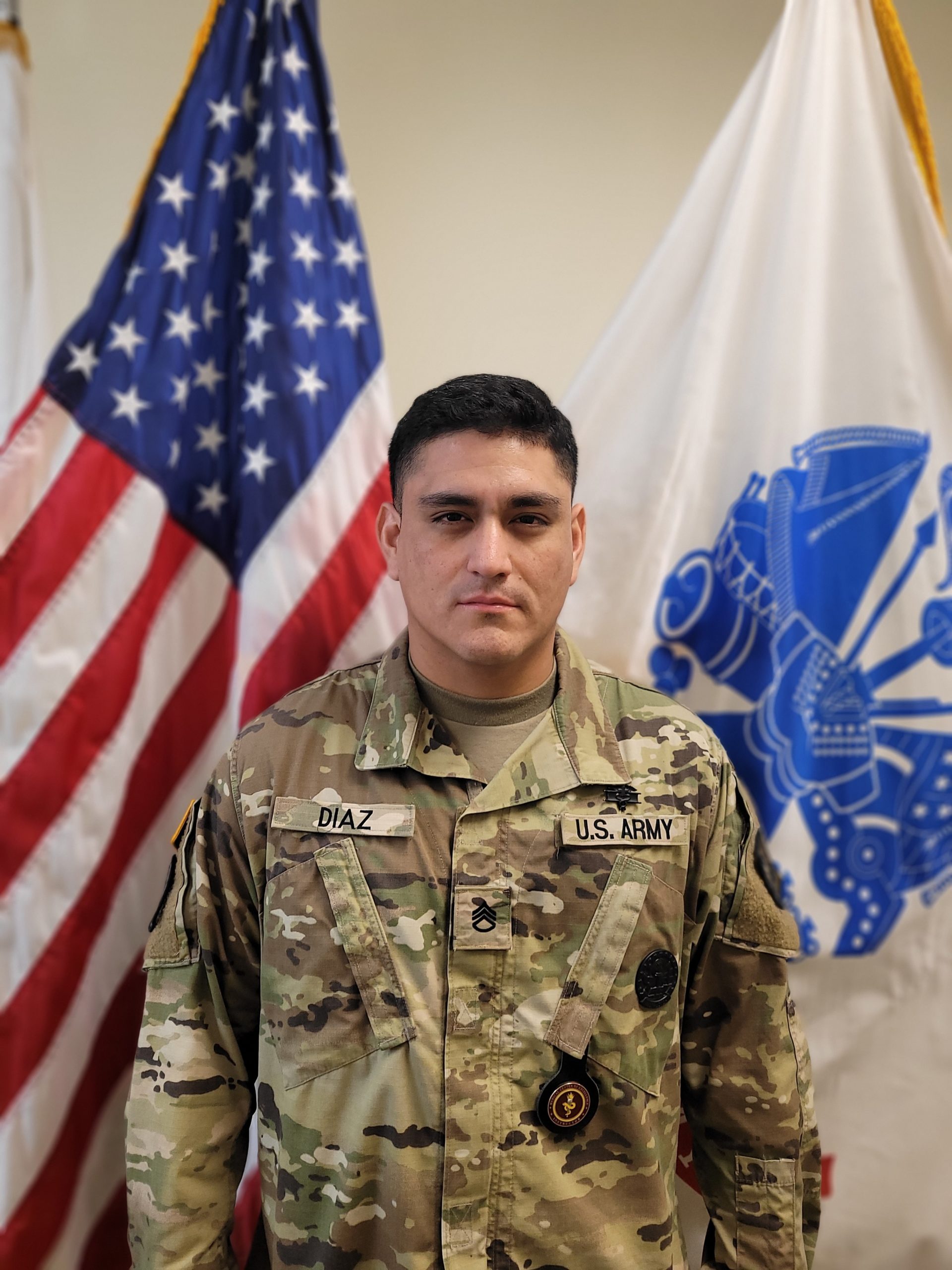 SSG Jose G. Diaz is a proud member of the U.S. Army.
SSG Jose G. Diaz is a proud member of the U.S. Army.SSG Diaz: I have operated within the medical field as a combat medic, serving with soldiers in the Field Artillery. I have worked in military treatment facilities and line units, providing medical care and training. As I was promoted in rank, I’ve had the privilege to become a coach, mentor, and leader for young soldiers. This aspect of my career has been the most rewarding, as it’s given me the chance to instill the values that have made me successful onto others.
Colonel Williams: I have served in many capacities of leadership in the TXSG, including Officer in Charge (OIC), Commander (Group and Company), Executive Officer (XO), Joint Taskforce Deputy Commander.
What are you doing now, and how do you believe your military service has made you a better RT?
SSG Diaz: I am a respiratory therapy instructor entrusted to educate and mentor Navy and Army students on current respiratory practices while providing valued insight on matters pertaining to current U.S. Army objectives. As a military respiratory therapist, I have been afforded opportunities of being the enlisted subject matter expert advocating for the field of respiratory care at the generating level and collaborating in the treatment of our nation’s leaders!
Colonel Williams: For me, it was the opposite. My training and education as a clinician, manager, and director in respiratory care helped me to be a better soldier and officer. Personnel management, leadership training, procurement, informatics, and logistics skills all gave me a cushion to learn more about soldiering and becoming a military leader. A willingness to learn and train alongside troops gains their trust — and when troops feel you have their back, they will have yours.
What do you most want your fellow RTs to know about veterans of the U.S. military and why?
SSG Diaz: We have a variety of experiences that contribute to our unique capabilities and outlook on the world. Our civilian counterparts’ lack of similar experience inhibits their capacity to fully value the experience of us veterans.
Colonel Williams: Unlike their civilian counterparts, military vets swore an oath and signed an open check to defend, protect and serve, and train up to understand the mission isn’t complete until it’s complete. This ethos applies to military RTs and their care of their patients, as well as their commitment to keeping people safe.
The AARC salutes SSG Jose Diaz, Colonel Wadie Williams, and all of the other military service members, past and present, within our profession of respiratory care.
Email newsroom@aarc.org with questions or comments, we’d love to hear from you.





